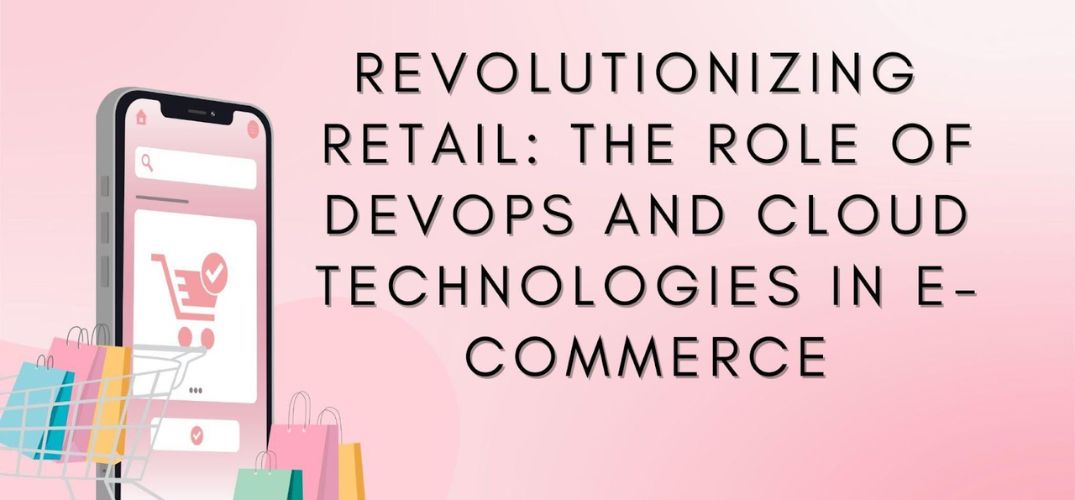In the ever-evolving world of e-commerce, retailers are increasingly relying on advanced technologies to meet growing consumer demands. The integration of DevOps practices and cloud infrastructure has transformed the retail landscape, enabling businesses to deliver seamless, reliable, and scalable online shopping experiences. This article delves into these innovations, highlighting the role of modern DevOps strategies, microservices architecture, continuous integration/deployment (CI/CD) pipelines, and observability tools in shaping the future of digital commerce. Insights from Abhinav Damarapati, a leading researcher in the field, illuminate the profound impact of these technologies on retail operations.
DevOps: The Backbone of Modern Retail
DevOps has redefined how retailers operate their e-commerce platforms. By facilitating faster deployments, improved scalability, and rapid recovery from system failures, DevOps practices have become essential for retailers navigating the high-pressure world of online commerce. According to research, companies employing DevOps report deployment frequencies up to 24 times higher than their competitors. This rapid deployment capability allows businesses to respond to changing consumer preferences swiftly, making them more agile and competitive in the market.
In addition, DevOps enables retailers to scale their platforms efficiently. Retailers who have embraced DevOps can handle significant traffic spikes—such as those during Black Friday or Cyber Monday—without compromising the shopping experience. This capability has become crucial, as customers are more likely to abandon purchases if a website experiences slow load times, particularly on mobile devices. Furthermore, DevOps practices lead to a reduction in operational costs, enhancing both system performance and customer satisfaction.
Microservices: The Key to Scalability
One of the most significant innovations in retail technology is the shift from monolithic architectures to microservices. Traditional, monolithic systems often struggle to handle high-traffic periods, causing slowdowns or outages during peak shopping seasons. Microservices, on the other hand, decompose e-commerce platforms into smaller, manageable services that can be scaled independently.
This approach allows retailers to enhance system resilience and improve performance during high-demand periods. Research shows that businesses adopting microservices experience 64% faster innovation cycles and a 78% improvement in their ability to scale during peak times. Additionally, microservices reduce the risk of system-wide failures by isolating issues to specific components, ensuring that problems in one area do not affect the entire platform. These architectural improvements result in better uptime and reliability, which are critical for maintaining customer trust and maximizing revenue.
CI/CD Pipelines: Accelerating Feature Releases
In the competitive e-commerce environment, staying ahead of the curve with new features and updates is vital. Continuous Integration/Continuous Deployment (CI/CD) pipelines play a crucial role in helping retailers rapidly release new features, fix bugs, and update their platforms without disrupting the shopping experience.
CI/CD pipelines automate the deployment process, reducing the time required to push out updates from months to days, or even hours. This automation also minimizes human errors, ensuring smoother updates and fewer deployment failures. As a result, retailers benefit from faster time-to-market, improved system stability, and a higher level of customer satisfaction. By embracing CI/CD, businesses can ensure their platforms remain agile and responsive, enabling them to quickly adapt to consumer trends and market shifts.
Observability: Preventing Failures Before They Happen
As e-commerce platforms become more complex, maintaining visibility into system performance is essential. Observability tools allow retailers to monitor their platforms in real-time, identifying and addressing issues before they impact the customer experience. This capability is especially crucial during high-traffic periods, where even a small glitch can lead to significant revenue loss.
By implementing comprehensive observability practices, retailers can reduce the mean time to detect (MTTD) and mean time to resolution (MTTR) for critical issues. Studies show that companies with advanced observability capabilities can capture more revenue during peak times by maintaining platform performance. Additionally, these tools help businesses predict and address potential issues before they affect customer interactions, resulting in fewer transaction failures and a better overall shopping experience.
The Road Ahead: A Seamless Future for Retail
Looking ahead, the integration of DevOps, microservices, CI/CD pipelines, and observability will continue to drive the future of retail. Emerging technologies like AI-powered testing and GitOps for infrastructure management will further enhance these capabilities, offering even greater agility and reliability. Retailers that fully embrace these innovations will be better positioned to create seamless, efficient, and personalized online shopping experiences for their customers.
In conclusion,As e-commerce continues to grow and evolve, the importance of these technological advancements will only increase. Retailers must remain agile, leveraging the latest tools and strategies to stay competitive in the fast-paced digital marketplace. The insights shared by Abhinav Damarapati underscore the critical role of DevOps and cloud technologies in shaping the next generation of retail, where seamless, reliable, and personalized experiences will become the standard. DevOps practices, cloud-native architectures, and advanced monitoring tools are transforming how retailers operate in the digital age. By adopting these technologies, businesses can ensure they not only meet customer expectations but also stay ahead of the competition. The future of retail is built on the foundation of innovation, agility, and technological excellence.

































